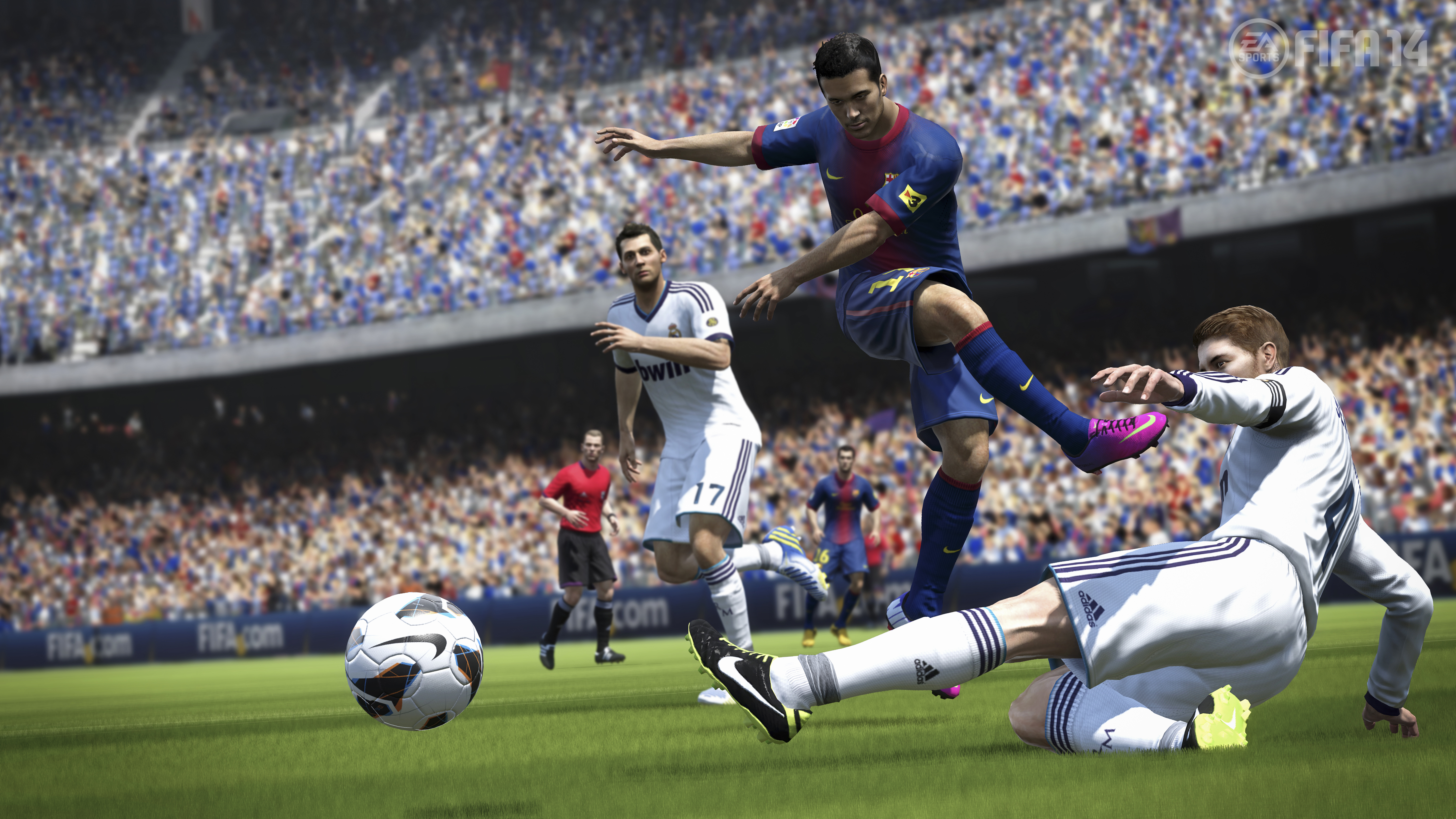PS4 game prices: what is EA playing at?
If greed is good, then EA must be angelic

Sign up for breaking news, reviews, opinion, top tech deals, and more.
You are now subscribed
Your newsletter sign-up was successful
Since it emerged that EA was charging an eye-watering £62.99 for some of its downloadable PS4 games, people have been demanding explanations.
Here's one: EA is the worst company in the world and it hates your guts.
Ok, maybe not. But clearly it thinks you're a mug.
Here's why: EA was charging £8 more for PS4 games than Xbox One ones, and its digital prices were £15.99 more than for the same titles on disc - discs that cost money to make, to package, to warehouse, to ship, to distribute, to deal with returns and so on, and which pay the same licensing fees to the platform owners as the digital ones do.
In the US, the digital and disc prices are identical - and those prices are much, much lower than they are over here. The US list price for FIFA 14 on PS4 is $59.99 (£37.14), and Amazon's currently doing it for $49.99 (£31). Unless George Osborne sneakily raised UK VAT to 50% this week, EA's clearly having a lot of fun with its pricing here.
Sadly the problem isn't just limited to EA, or to games. Tech firms have long operated pricing policies that essentially translate dollars into pounds - so for example Adobe's Creative Cloud is $49.99 per month in the US and £46.88 per month in the UK, around £10 per month more than you'd expect at current exchange and tax rates, when it launched, the PS3 was significantly more expensive in the UK than it was in the US, and so on.
Entertainment firms in particular have a long tradition of trying to charge as much as they possibly can for absolutely everything.
Sign up for breaking news, reviews, opinion, top tech deals, and more.
Why you'll miss the middlemen
With each new generation of gaming, publishers try to put the prices up - and, after a while, competition brings them down a bit
Sometimes there's a perfectly reasonable explanation for price differences. Ebooks aren't always as cheap as you might hope because retailers have to charge VAT, which doesn't apply to dead trees (although the difference isn't always dramatic: many ebook sellers operate from countries where VAT is much lower than it is in the UK).
Similarly electronic magazines might not be as cheap as you'd expect, because while they don't have the dead-tree distribution costs they often pay huge sums in commission to platform owners such as Apple.
It's the same with games. Console games are more expensive than PC ones because PCs don't levy a commission on each game sold, but Xboxes and PlayStations do. That's why FIFA 14 is currently £31.99 on PC and between £34.99 and £38.99 on Xbox 360 and PS3.
That doesn't explain why FIFA 14 on PS4 is twice the price of the PC version, of course.
All those zeros
More often than not, the explanation for really high prices is that the company's charging as much as it thinks it can get away with.
Firms don't set prices according to what's sensible or what's fair. They set prices based on what they think the market will bear.
CDs used to cost twice as much as they do now (while paying musicians less), and the record industry made huge profits as a result; the industry's current woes aren't because CDs aren't profitable, but because we've largely stopped buying CDs. Early Blu-rays were frighteningly expensive, and the same applied to DVDs before them.
With each new generation of gaming, publishers try to put the prices up - and, after a while, competition brings them down a bit.
Maybe EA has done us a favour. By showing what it'd like you to pay for your games, it's shown us the dark side of digital distribution: if it weren't for retailers undercutting the RRP and gamers selling used games, the prices we've seen on EA titles are the prices you'd pay for absolutely everything.
Technology may be very good at cutting out middlemen, but it's also very good at cutting out competition.

Contributor
Writer, broadcaster, musician and kitchen gadget obsessive Carrie Marshall has been writing about tech since 1998, contributing sage advice and odd opinions to all kinds of magazines and websites as well as writing more than twenty books. Her latest, a love letter to music titled Small Town Joy, is on sale now. She is the singer in spectacularly obscure Glaswegian rock band Unquiet Mind.